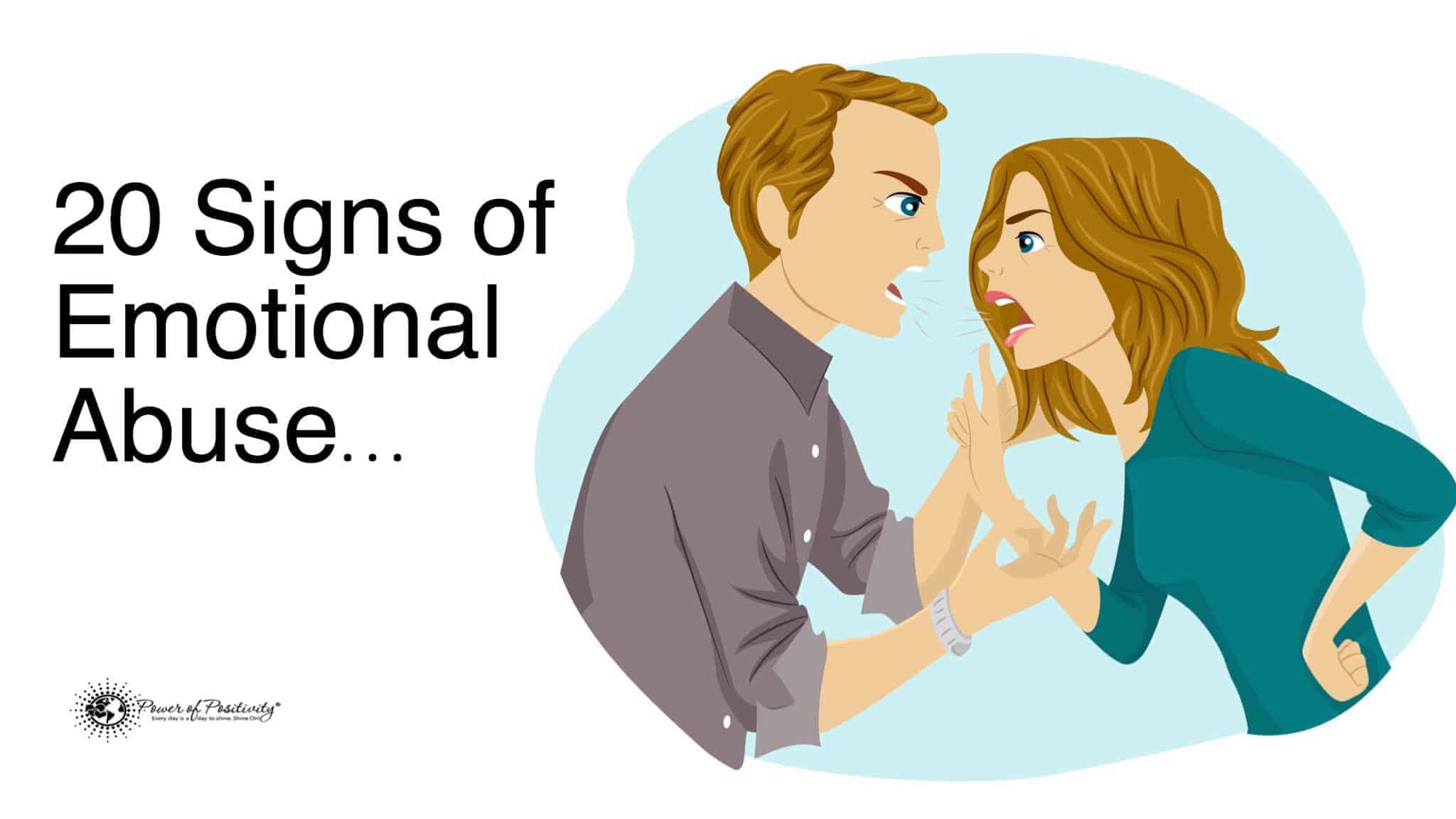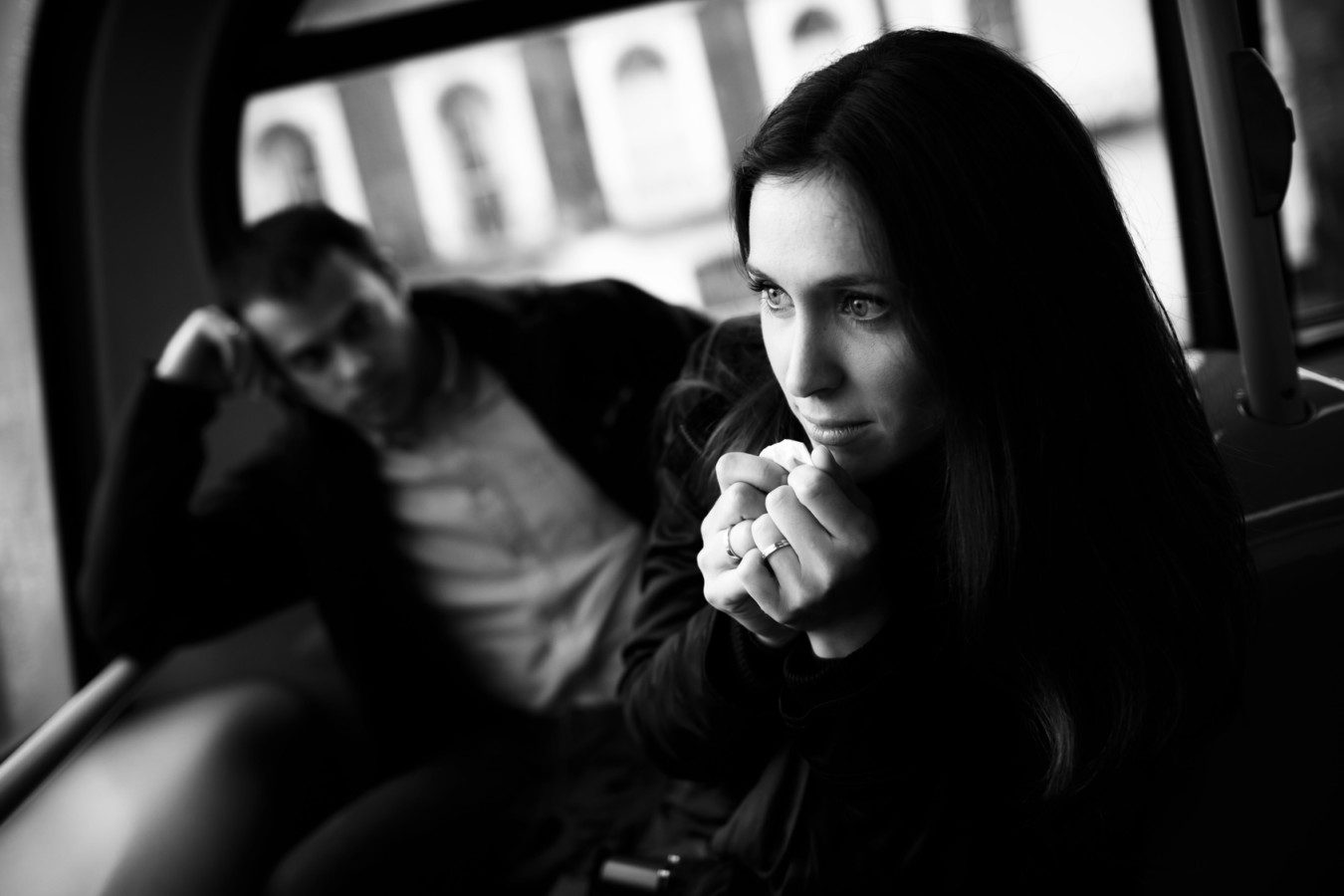An emotionally abusive relationship is harmful to your confidence and self-esteem, and you may not even be aware of the abuse. Unlike physical abuse that causes physical pain and leaves visible markings, the signs of emotional abuse are not as apparent.
Research shows that emotional abuse is as damaging to a person as both physical and sexual abuse. The study that followed 846 at-risk children over a 14-year period shows that the most common abuse is the psychological threat to safety and security.
The reason emotional abuse is so harmful is that it affects how we think about ourselves. Abusers issue out actions, attitudes, and words that intentionally demean and humiliate. They do this as a form of control. In fact, they often leave the victim feeling confused, powerless and afraid.
All abuse directly attacks our self-esteem, but emotional abuse does it directly by linking our self-worth to being loved. You might be surprised to learn that several studies show emotional abuse occurs at the hands of men and women at equal rates. It can happen in any relationship.
Here are 20 warning signs of an emotionally abusive relationship:
You might be in an emotionally abusive relationship if they do any of the following behaviors:
- Constantly humiliate you in front of other people.
- Criticize your actions as being less than perfect makes you feel as if you can’t do anything right.
- Tell mean, inappropriate and demeaning jokes.
- Want to be in control of everything including your actions.
- Constantly remind you of your shortcomings and failures.
- Do not value your feelings and often will tell you that you are wrong and that you are too sensitive.
- Give disapproving and dismissive looks that leave you fearful of being alone with them.
- Withhold displays of affection and sex as a form of punishment.
- Belittle your dreams and accomplishments.
- Share your private moments and your secrets with others against your wishes.
- Do not think you are capable of knowing what is best for you.
- Blame you for their problems, their mood, and their overall unhappiness.
- Can’t laugh at themselves, and they get extremely sensitive when others laugh at or make fun of them.
- Make you feel wrong for wanting to see your friends or do anything fun without them.
- Always make you feel as if you aren’t good enough for them and that you should be thankful to be in the relationship.
- Insist on always being right while you are always wrong.
- Issue subtle threats that are disguised as a suggestion to help you.
- Control the finances so they can control your actions and how you spend money.
- Constantly call or text to check up on you, who you are with and what you are doing when you are not together.
- Accuse you of things that are not true, so you are forced to prove your love.
You must understand…
This list isn’t comprehensive by any means. But when there is a feeling that we can’t be our authentic self and that we are constantly in fear of doing or saying the wrong thing; we need to evaluate if the relationship is emotionally abusive.
Emotionally abusive people are conditioned to make us feel that they are superior and that we don’t deserve them. They make us feel like we deserve to be treated the way we are and that we are lucky to be in a relationship with them. They are masters at manipulating the way we feel.
This is not our fault. We are not to blame. There is probably little that we can do to change the behavior or improve the relationship. Recognize it for what it is, abuse.
Left alone, the stress of an emotionally abusive relationship can manifest itself in the form of illness, depression and even long-term emotional trauma. That’s why it is important first to recognize the behavior and then seek help. Recognizing the behavior can be difficult because we are so attached to the relationship, that we don’t want to think about letting it go. That’s why we need to be aware of some key signs that the relationship isn’t serving us.
Since it is so hard to see from the inside of a relationship, as a friend we should be looking for these signs in the relationships of those we love. It might take an outside eye to spot emotionally abusive behavior. Proceed with caution because it can be a challenging conversation to have.
If you begin to notice the signs of an emotionally abusive relationship, whether it’s you or someone you care about, seek professional help. Just because the relationship isn’t violent yet, doesn’t mean it won’t escalate and you should get a clear understanding of the situation from someone trained to help everyone stay safe.


















